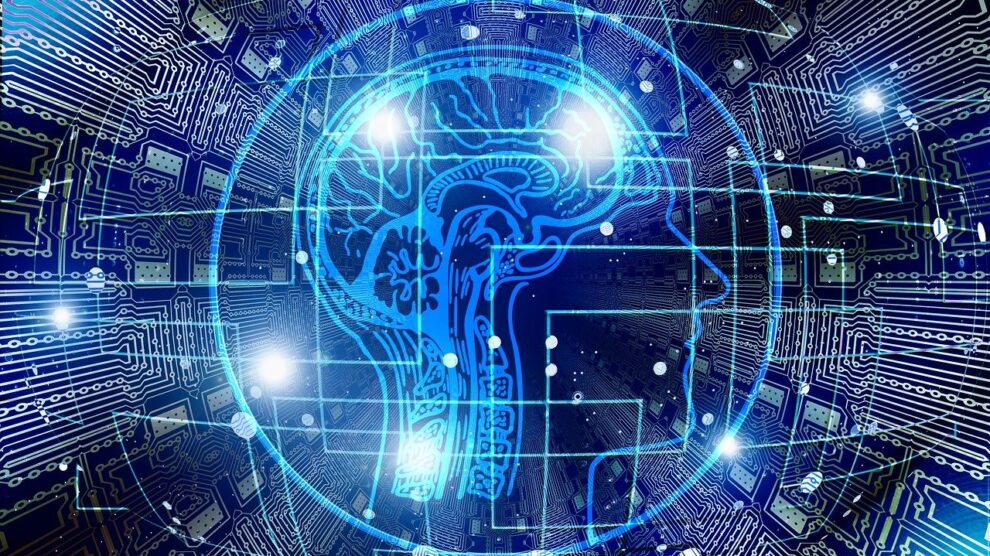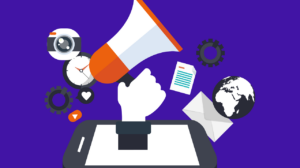Artificial Intelligence has become an indispensable part of our everyday lives.
Although most people associate this advanced technology with sci-fi dystopias in which androids take over the world and try to destroy humans, we’re currently still very far from this uncanny valley scenario.
At the moment, AI is mostly used for reducing human efforts and errors, automating certain tasks almost completely, while also helping us perform a number of repetitive and mundane tasks faster and more accurately.
AI has disrupted a number of industries, including healthcare, education, business, and marketing.
Here are some of its impacts we’re currently witnessing.
Big Data
It’s through big data that ordinary people get in touch with AI the most.
Amazon, Netflix, Microsoft, Google – what do these world’s most innovative brands have in common?
Besides being billion-dollar companies, these three are among the ones that leverage the power of the synergy of big data and AI.
Netflix has the “because you watched…” section, which offers suggestions based not only on what other people who have preferences and viewing habits similar to yours, but also based on similar characters, plot lines, actors, and directors that you’re interested in.
At first sight, these picks have nothing in common, but the streaming giant’s advanced, AI-powered algorithm goes well beyond the genre and uses a vast amount of data in order to recommend you binge-worthy shows and movies.
Amazon has a similar, equally powerful recommendation engine, responsible for 35% of the online retailing giant’s revenue.
The internet is an invaluable resource of concrete and insightful data, which if unstructured, can’t be used in a meaningful way.
AI is capable of collecting, processing, analyzing and interpreting huge volumes of data, and with the help of big data analytics, it can identify different patterns that can turn a pile of unstructured data into a coherent source of valuable information.
With data coming from many different sources, AI is able to make accurate predictions about future behaviors and circumstances, that can easily be applied in any industry.
For example, sales and marketing can greatly benefit from this AI’s forecasting functionality, as it will make predictions not only based on your purchasing history and behavior, but will also take into account every other bit of information it collected, such as how you browse the online store, what items you view, and which ones you decide to skip.
Another great example of AI and Big Data implementation is UPS, saving 10 million gallons of fuel annually by using the software to plan and optimize their routes.
Still, to be able to fully leverage the power of big data, AI still needs to mature, and the same goes for our knowledge on how to best implement it.
AI Assistants
Siri, Cortana, Alexa, Google Assistant – almost every big name in the high-tech industry has its own AI-powered virtual assistant, helping its users with managing their everyday tasks.
These assistants use voice queries and natural language processing to function, and they can handle tasks such as sending text messages, making calls, setting alarms and reminders, offering recommendations and answering questions. They can even order food if you ask them.
Google Assistant can handle text queries too, while Alexa can stream podcasts, play music and audiobooks, and provide real-time information on weather, traffic, news, etc.
Furthermore, advanced organizations use digital assistants to interact with their users, thus reducing the demand for human resources.
With no emotional response clouding their judgment, while focused on certain tasks, digital assistants can be significantly more efficient than their human counterparts, and boost the satisfaction of users due to fast and timely response.
They’re also available 24/7 and unlike human customer service agents, chatbots don’t need breaks to be able to function.
AI-powered chatbots are a perfect example of how all businesses use the latest technologies to their advantage.
With the development of Theory of Mind AI, we can only expect digital assistants to provide more personalized service, as they will be able to understand the needs, intents, emotions, aspirations, and beliefs of people they are interacting with.
Personal AI Tutors
Education is another field that can greatly benefit from using AI.
Personal AI tutors assigned to every student will take teaching and learning to a whole new level.
Given that a single teacher can’t work individually with every student in their class, these advanced teaching assistants will not only allow every student to get one-on-one help but will also make it possible to tailor the teaching approach based on their individual needs.
In other words, students will be able to learn and acquire new knowledge and skills at their own pace.
That’s not all. AI tutors will not be your regular robotic assistants that deliver lessons wearing a poker face – they will be able to assess, interpret, and react to students’ emotions, and adapt their approach according to students’ learning preferences.
Self-Driving Cars
Tesla, a trailblazing car manufacturer, is among the first in the industry that started using AI, big data, and cloud technology in an attempt to build autonomous vehicles.
The company recently announced that its Level 5 autonomous functionality would be accessible to certain customers by the end of 2019.
This basically means that the chosen customers will get so-called “feature complete.” In other words, their fancy cars will be able to drive them from their homes to work without any intervention.
However, as this feature is still in beta, drivers won’t be able to doze off as they will need to take control should something unexpected happens.
Although we’ll still have to wait and see whether this promise will come true, there’s no doubt that Tesla has come a long way when it comes to building the auto-pilot for their vehicles. Every now and then, a picture of a reckless Tesla owner asleep at the wheel emerges on social media and proves that this AI-powered technology works.
Healthcare
It’s only logical that such a tremendously powerful technology should be used in the healthcare industry in which every advancement can make a difference between life and death.
Since having the right information is crucial in healthcare, it’s important to collect, analyze, and make use of as many medical records, clinical research studies, and other relevant sources. And, this is a very challenging task.
IBM Watson Health is an AI-powered platform that can analyze large amounts of medical data collected through different devices and interpret them so that healthcare providers can access the information they need in order to make timely and well-informed decisions.
With the help of this open platform, physicians and researchers will have an opportunity to get important bits of information collected from a number of people (whose identity will be protected) and obtain valuable insights into the factors that affect people’s health.
Watson Health has already tapped into the adjacent industry as it has been helping pharmaceutical companies research new drugs.
Whether we are ready or not, AI is here and it’s not going anywhere soon. With further developments in this area, as well as the advancement in other high-technologies, such as machine learning, deep learning, and neural networks, the greatest improvements are yet to come.





